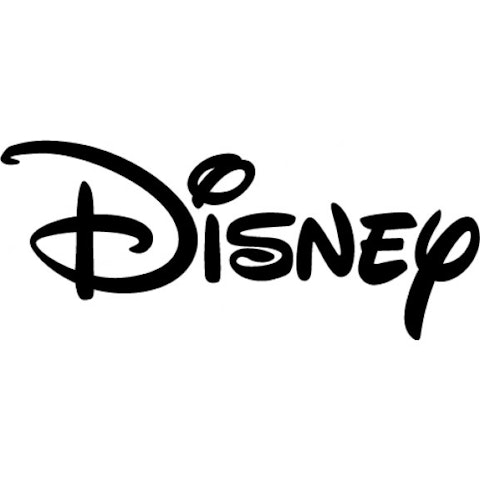The Walt Disney Company (NYSE:DIS) has made headlines this year with the strong openings of films such as Iron Man 3 and Monsters University. Both films reported impressive earnings, with Iron Man 3 enjoying the second-largest opening weekend of all time and Monsters University reporting the second-largest opening among Pixar films. Clearly, Disney’s studios are working hard on churning out blockbuster hits.
Unfortunately, not all is well in the House of Mouse. While its animated features continue to do well and films by some of its studios are breaking records, other films leave a lot to be desired. Last year’s John Carter underwhelmed, causing the studio to take a loss on the $250 million film after marketing and other expenses were factored in. The company’s recent reboot of The Lone Ranger seems destined for a similar fate, failing to strike box office gold over the long 4th of July weekend while being bombarded with negative reviews.
Investors don’t care… yet
Fortunately for The Walt Disney Company (NYSE:DIS), the threat of a major summer tentpole release being branded a flop hasn’t shaken its investors. The company has had solid growth as a whole, and any hit the film might cause to the studio entertainment segment is reduced by other well-performing films. In the company’s most recent quarterly report, studio entertainment revenues increased by 13% to $1.3 billion while operating income increased by $202 million to $181 million. This revenue growth will increase further in the next quarter’s report to account for this summer’s blockbusters.
It’s worth noting, however, that one part of the reason for the company’s strong performance was the write-down of John Carter in the same quarter of the previous year. The segment reported a loss of $84 million in the second quarter of 2012, and if not for the amazing performance of Iron Man 3 might have suffered similarly as a result of The Lone Ranger. Occasional flops won’t break the company, but if The Walt Disney Company (NYSE:DIS) continues to fumble with blockbuster releases that cost over $200 million to produce then investors might worry that the company’s film income is inconsistent.
Interactive losses
Significant flops at the box office aren’t the only things that The Walt Disney Company (NYSE:DIS) has to worry about when it comes to investor confidence. The company’s interactive segment has been struggling for a while now, reporting an operating loss of $54 million in the recent second quarter. This is an improvement from the $70 million loss reported in the second quarter of 2012, but with the segment reporting only an 8% growth rate it may take several more quarters for it to become profitable.
The Walt Disney Company (NYSE:DIS) isn’t ready to give up on its interactive segment without a fight, of course. Growth drivers for the segment include the expansion of the company’s mobile business in Japan and further expansion into social gaming. While the investment into the Japanese mobile business increased the segment’s operating expenses, this investment will likely pay off in the long run with increased mobile revenues. Likewise, an expanded social gaming presence brings an opportunity for more revenue through microtransactions and similar monetization opportunities.
Disney is also shielding itself from some losses in the interactive segment. In May, the company signed a multi-year contract with Electronic Arts Inc. (NASDAQ:EA) to make the company the exclusive developer of new games based on the lucrative “Star Wars” franchise. EA and its studios already have multiple games in the pipeline based on the property, all but ensuring profits not only for itself but also for Disney. While Disney retains the rights to develop “Star Wars” games on certain platforms, Electronic Arts Inc. (NASDAQ:EA) will do the bulk of the development and likewise will bear the bulk of the expenses associated with game development.
Facing the competition
In the coming years, Disney needs to show its strength and avoid a trend of big-budget flops in regard to its major releases. While the two-films-a-year release schedule of Marvel Studios films will help with this, even those films may see increasing competition from studios such as Time Warner Inc (NYSE:TWX)’s Warner Bros.
As I recently mentioned, Time Warner Inc (NYSE:TWX) owns DC Comics, the other major comic book publisher that shares 70% market share with Disney’s Marvel Comics. This gives Time Warner and Warner Bros. access to DC’s extensive character roster, allowing the studio to make record-setting films of its own such as Man of Steel. If DC’s superhero films start giving Marvel Studios’ films a run for their money, the runaway profits of the releases might drop as comic fans have more than one option available to get a superhero fix from.
To Infinity and beyond
Disney is by no means in trouble yet. Even if The Lone Ranger tapers out and loses money, the company still has several strong upcoming releases to make up the loss with. It even plans on launching Disney Infinity later this year to try and buoy up its interactive segment, and if the game is a hit like Activision Blizzard, Inc. (NASDAQ:ATVI)’s “Skylanders” franchise then Disney Interactive could show a profit soon. The company needs to remain vigilant, however, since its properties aren’t going to sail through based on the company’s reputation. While Disney has some powerful properties, if it suffers from annual flops then both investors and consumers might start wondering whether the company is really worth their time and money.
John Casteele has no position in any stocks mentioned. The Motley Fool recommends Walt Disney. The Motley Fool owns shares of Walt Disney.
The article An Unsettling Trend in the House of Mouse originally appeared on Fool.com and is written by John Casteele.
John is a member of The Motley Fool Blog Network — entries represent the personal opinion of the blogger and are not formally edited.
Copyright © 1995 – 2013 The Motley Fool, LLC. All rights reserved. The Motley Fool has a disclosure policy.





